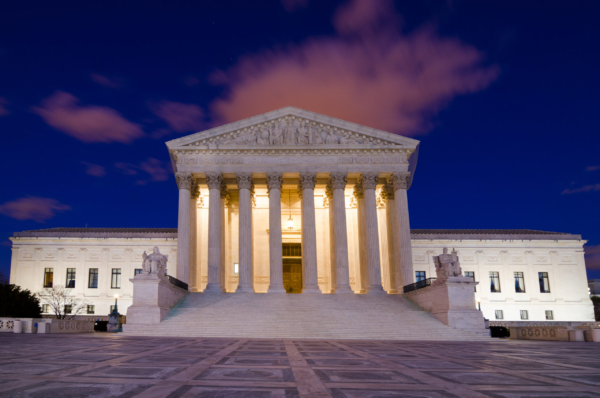
WASHINGTON, DC (October 10, 2023) — Party and race have been intricately intertwined in redistricting, with race and party many times serving as a proxy for the other. State legislatures throughout the United States have long exploited this by drawing electoral maps that racially gerrymander voters of color while claiming they are drawing those maps based on political affiliation and not race or ethnicity. The United States Supreme Court (the “Court”) will hear the case Alexander v. South Carolina State Conference of the NAACP which tees up the question of the extent to which racial gerrymandering can be used to achieve a partisan aim with the South Carolina Legislature’s recent movement of thousands of Black voters into various Congressional districts in an effort to achieve the partisan goal of ensuring the majority party retains its political hold over the state.
There have been many racial gerrymandering cases before the Court, ultimately creating precedent that the predominant use of race in redrawing districts is “suspect” and Justices must analyze whether the state/locale has a compelling reason to use race as a predominant factor. In the Alexander case, the South Carolina Legislature alleged no compelling reason for using race as a predominant factor, asserting at trial only that their line-drawing was to achieve a partisan aim. However, the Court has long acknowledged in previous cases that when race and party are closely aligned, using race to achieve a partisan aim is prohibited. The Court must uphold this precedent.
The Alexander case presents an opportunity for the Court to affirm its precedent that race cannot predominate in order to achieve a partisan aim, and moreover, it provides an opportunity for the Court to mandate that voters of color cannot be used as political tools in state legislatures’ attempts to ensure and insulate a majority party’s power. Partisanship can never be used as a proverbial fig leaf to hide racial discrimination nor can race be used as a crude tool to achieve partisan ends. When partisan goals are achieved through the illicit use of race, that results in a racial gerrymander. Voters of color cannot be used as partisan pawns to gerrymander districts, as Black voters were in South Carolina. When they are, it is unconstitutional, and it should never be tolerated.
The Voting Rights Working Group is a loose consortium of 12 of the nation’s most prominent and experienced non-profit organizations pursuing voting rights litigation on behalf of racial minorities. Our member organizations are non-partisan legal advocacy groups with decades of experience in using the law to promote and protect the voting rights of people of color. Our member organizations are:
- American Civil Liberties Union
- Asian American Legal Defense and Education Fund
- Asian Americans Advancing Justice – AAJC
- Asian Americans Advancing Justice – Los Angeles
- Brennan Center for Justice at NYU School of Law
- Demos
- LatinoJustice PRLDEF
- Lawyers’ Committee for Civil Rights Under Law
- MALDEF (Mexican American Legal Defense and Educational Fund)
- NAACP Legal Defense and Educational Fund
- Native American Rights Fund
- Southern Coalition for Social Justice

